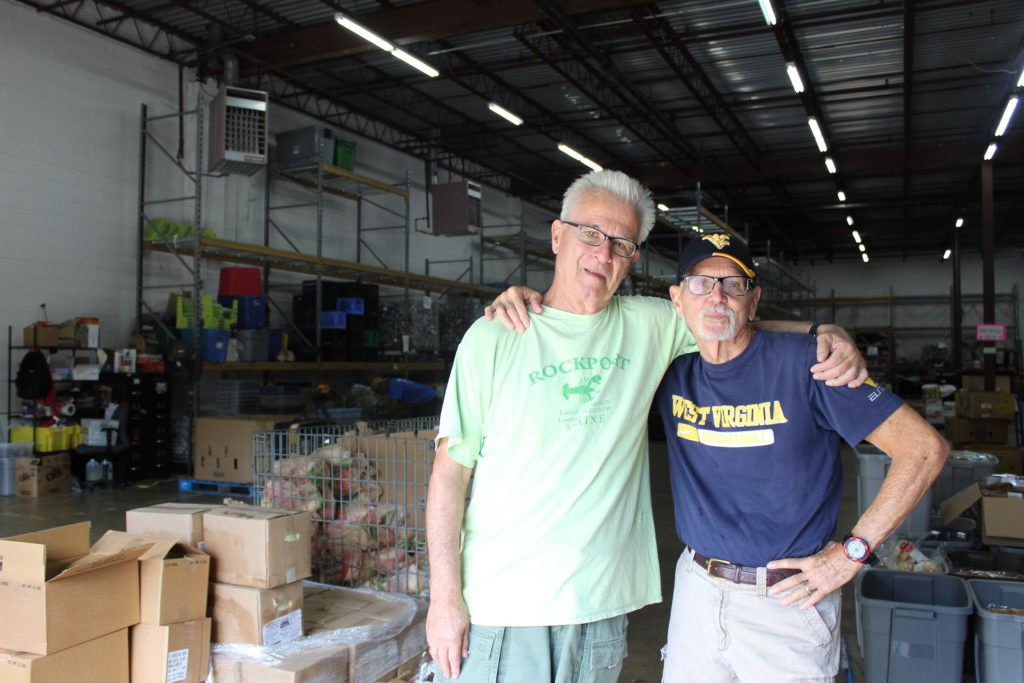When people sign up to volunteer at Food for Others, they undoubtedly know the positive impact they will have on the local community. What many of our volunteers may not know is the positive impact that volunteering can have on their own mental and physical health, and that volunteering their time at FFO may even be increasing their lifespan.
According to the Stanford Center on Longevity, volunteering improves cognitive function, reduces hypertension, and lowers the risk of depression. It can also reduce stress and elevate mood which both contributes to improved physical wellness.
Volunteers tend to be more satisfied with their social lives as well. Individuals who volunteer frequently have more social connections, better quality of relationships, and report experiencing less loneliness.
There is clear evidence of this in the Food for Others warehouse.
Many of our volunteers become regulars not only because they find their work rewarding but also because of the strong relationships they form with the FFO staff, clients, and their fellow volunteers.
Each day, volunteers of all ages can be found bustling about the warehouse, chatting with each other and with FFO staff, preparing and distributing food, and bringing smiles to our clients’ faces.
They may also be lengthening their lives in the process. Studies suggest that the combination of reduced physical stress, improved social relationships, and the satisfaction of contributing to a worthy cause increases longevity.
One famed Food for Others volunteer began volunteering in our warehouse regularly at age 92. He lived several months past his 100th birthday.
Volunteering can be especially beneficial for people who are older or retired. However, individuals should not feel like they have to wait until they retire to give back to their community by volunteering. In fact, people who start volunteering when they’re young are much more likely to continue to volunteer as they get older.
About 75 percent of people who volunteer before entering retirement continue to volunteer after they retire. Significantly fewer people— only about 33 percent— suddenly start to volunteer after retiring.
This phenomenon is often referred to as “volunteer inertia” and it suggests that it is never too early to set aside time for helping others.
If you would like to sign up to volunteer at Food for Others, please click here.


